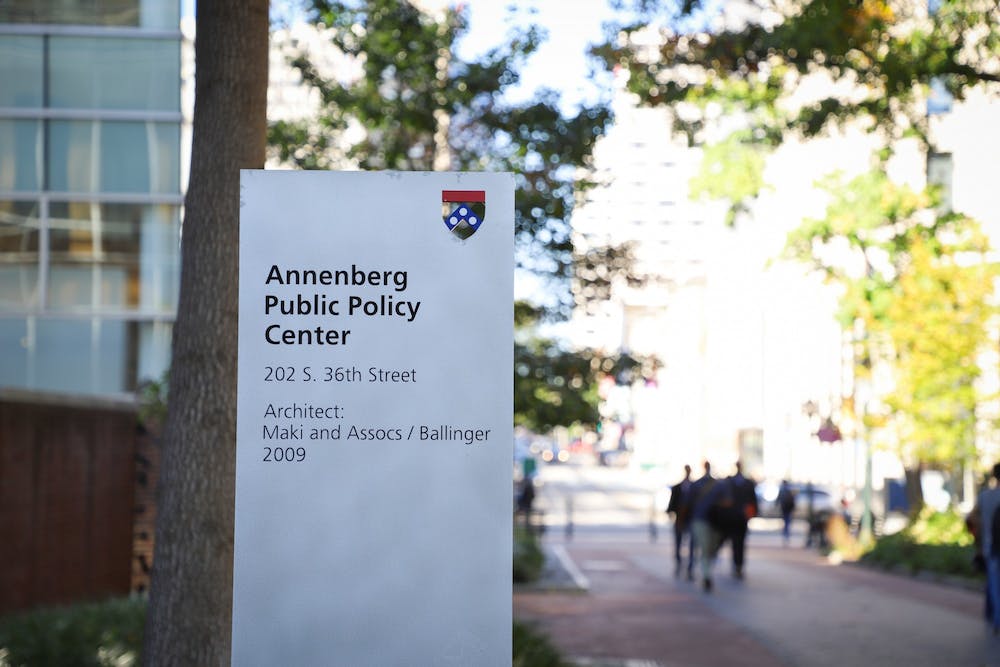Annenberg study examines impact of pre-pandemic conspiratorial thinking on vaccine hesitancy

A new study conducted at the Annenberg Public Policy Center at Penn found that people who demonstrated conspiratorial thinking before the pandemic were more likely to believe conspiracy theories regarding COVID-19, increasing their vaccine hesitancy.
The study, published in early November in Scientific Reports, was conducted by Dan Romer, the APPC research director, and Kathleen Hall Jamieson, the director of APPC. They collected data by re-interviewing a panel of individuals from a 2018 survey designed to explain resistance to vaccinations.
Of the 3,000 adults who participated in the 2018 study, Romer and Jamieson re-interviewed 1,243 members in January 2021 regarding different sources of vaccine hesitancy before the onset of the pandemic. This included a lack of trust in the Food and Drug Administration and the Centers for Disease Control and Prevention, belief in misinformation spread about the safety and efficacy of other vaccines, and a tendency to have a conspiratorial mindset towards health authorities and the government.
From the survey, the study found that those who believed in conspiracy theories, such as the United States government attempting mind control via fluoride in public water systems or planning the 9/11 attacks, were more likely to believe in COVID-19 conspiracy theories such as the virus being created as a bioweapon.
The researchers also discovered that individuals with a conspiratorial mindset were more likely to accept misinformation about the COVID-19 vaccine, including the belief that the vaccine alters human DNA. These individuals had a tendency to integrate new misinformation on COVID-19 vaccinations with old misinformation about vaccines in general.
Although COVID-19 vaccines are widely available throughout the United States and were proven to be both safe and effective, 32% of the population is still not fully vaccinated. While prior studies showed a correlation between belief in conspiracy theories and vaccine hesitancy, this research demonstrated that conspiracies that were spread prior to the advent of the pandemic can affect people’s likelihood of getting vaccinated.
In their article, Romer and Jamieson emphasized the importance of educating the public about the true benefits and side effects of the COVID-19 vaccine.
“Efforts to encourage acceptance of COVID-19 vaccines will hinge not only on providing information about their efficacy and safety from sources audience members find credible but also improving knowledge of vaccination in general,” Romer and Jamieson wrote.


